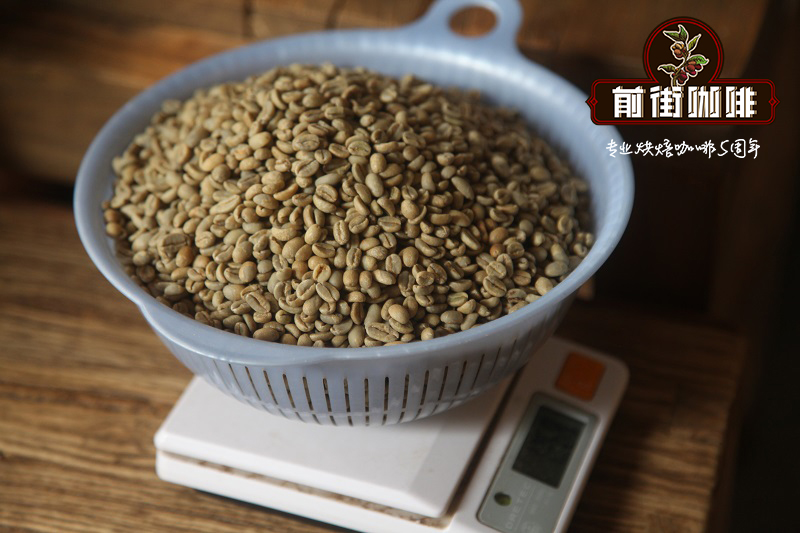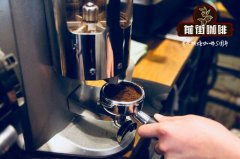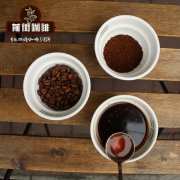What is the scientific principle behind coffee grinding? How much effect does grinding have on a cup of coffee?

What's the difference between an ordinary cup of coffee and a perfect cup of coffee? Everything from the freshness of coffee beans to the way you cook them is one of the reasons. One of the most overlooked factors is the consistency of grinding, which seems trivial because the extraction begins with the direct addition of water.
Contrary to what you think, if you have compared it carefully, you will be shocked by what you have found. The correct grinding level can directly affect the flavor and texture of coffee. The more stable the grinding of your coffee, the easier it is to make a perfect cup of coffee.
The relationship between extraction and flavor equilibrium
If the coffee powder you use is too coarse, the flavor of the coffee can not be fully extracted during the extraction process, which can easily lead to over-sour coffee, which is often called "insufficient extraction". On the contrary, if you grind it too fine, it is easy to over-extract, and the flavor is also uneven.
Neither excessive extraction nor insufficient extraction is a good thing, which directly affects the quality of coffee products. Before you start trying to be a family barista, it's best to be familiar with coffee grinding. Taking advantage of this can help you improve your ideal cup of coffee.
What does the degree of grinding include?
Very fine grinding-suitable for brewing commercial espresso machines and Ibrik Turkish coffee.
Fine grinding-one of the most common grinding degrees, suitable for Italian coffee machines, etc.
Medium and fine grinding-suitable for drip type hand coffee, D special pressure and so on.
Medium grinding-also suitable for Aeropress and tipping coffee machines.
Medium and rough grinding-suitable for paper filters such as Chemex and Smart Cup.
Rough grinding-suitable for drip coffee, Chemex and siphon coffee.
Super thick-suitable for French pressure pot brewing, cold brewing coffee.
It is worth noting that no degree of grinding can be applied to all types of coffee extraction, and it is better to use the corresponding degree of grinding in a specific extraction method.
What do you use to grind coffee beans?
After you have acquired the knowledge of the degree of grinding that suits your cooking method, the next step is to bring your attention to how to grind. It is important to know the best type of bean grinder and how to maintain it properly.
In the field of home coffee grinder, the most common and mainstream is the blade coffee grinder. Unfortunately, the effect of the blade grinder is not ideal, there are a lot of irregular coffee powder, and there is a scorched taste (caused by the heat of the rapidly rotating leaves), the degree of grinding of the coffee will lead to inconsistent taste of the extraction.
You may also want to realize that the adjustment of your grinding settings depends on the type of coffee beans you grind, and not all beans are the same. You need to try, or follow the advice of the baker, choose the best way to grind the beans, according to the origin of the beans, in order to achieve the right extraction and complete flavor presentation.
Important Notice :
前街咖啡 FrontStreet Coffee has moved to new addredd:
FrontStreet Coffee Address: 315,Donghua East Road,GuangZhou
Tel:020 38364473
- Prev

Espresso | three factors determine how to adjust the speed at which you produce espresso.
1. Powder quantity refers to the amount of dry coffee powder poured into a filter bowl. Ideally, an electronic scale with an accuracy of 0.1g is used to measure the amount of powder. The filter bowl of the handle usually has a capacity limit; if not marked, the amount of powder should not exceed the edge of the filter bowl. Once the amount of powder is determined, it should be taken as the standard to remain stable. For example, the amount of powder in my coffee machine is 20g, so every time I
- Next

Legend of Donna Manor, Brazil-- won the BSCA competition of the Brazilian boutique association for three consecutive years.
The family of the owner of Donna Manor grew coffee in South Minas for a long time. After inheriting his father's farmland, the estate was named after his mother's Dona and began operation in 1977. The conservation work of the manor far exceeds Brazil's environmental regulations, replanting native trees and shrubs, and the farm retains about 450 acres of beautiful woodland. Apart from coffee, the farm grows other kinds of food
Related
- Beginners will see the "Coffee pull flower" guide!
- What is the difference between ice blog purified milk and ordinary milk coffee?
- Why is the Philippines the largest producer of crops in Liberia?
- For coffee extraction, should the fine powder be retained?
- How does extracted espresso fill pressed powder? How much strength does it take to press the powder?
- How to make jasmine cold extract coffee? Is the jasmine + latte good?
- Will this little toy really make the coffee taste better? How does Lily Drip affect coffee extraction?
- Will the action of slapping the filter cup also affect coffee extraction?
- What's the difference between powder-to-water ratio and powder-to-liquid ratio?
- What is the Ethiopian local species? What does it have to do with Heirloom native species?

